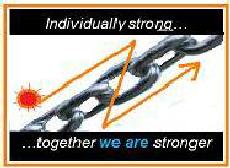|
Opinion:
"We need to change this Image"
Most of
Branded oil companies review their corporate policy every year in the way they
manage their gas station properties based on the prevailing economic conditions.
The current environment has been for quite some time to get out of the
real-estate business and focus solely on and selling fuel to gas stations.
The properties are primarily sold to jobber-distributors and the rest sold
through mostly real-estate auctions to the general public.
Most
of the jobbers have been gas station operators who and over time built a
portfolio through hard work and determination.
As
jobbers grow, managing the day-to-day operation of gas stations can be
challenging, thereby leaving them with two primary options:
1)
Sell the properties but maintain long-term supply contracts, or
2) Lease them out to dealers and/or commission lessees.
They
know financials at every location they own, jobbers often hold onto the best
sites while selling or leasing over moderate and marginal ones to the
dealers/lessees. Jobbers have mortgages to pay and are entitled to a profit just
like anyone else. So every station leased out to a dealer has a certain
breakeven number that has to be met and anything over and above that is the
dealer's profit. With the economy the way it is since the last five years, even
the moderate stations dropped to the marginal making stations even more
difficult for the operator.
In
every business relationship, unless there is a win-win situation, one party is
going to suffer. I have been in the business for more than 20 years. What is
missing a very important fact.
Few
jobbers or distributors have taken into account the basic expense for a working
dealer to pay his personal expenses. The national median income ranges from $40,000
to $45,000, barely enough for a household to meet its expenses. Some jobbers
expect the dealer to work very long hours, not take a salary and survive. We
need to change this image. A person with a family needs approximately $50,000
just to keep up with basic necessities. Anything less puts you in the poorhouse,
especially in this business. Unless and until jobbers make this shift there is
always going to be a very high turnover of stations changing hands or closing
down. I personally know of several large jobbers who own 100 to 300 stations
each and have at least 30% of their stations in this situation.
For
the last 20 years, the vast majority of dealers across the country have been
South Asian immigrants who have worked extremely hard to make it. Some have done
well and others are living day to day life while putting in long hours. Many are
losing their life savings, thanks to one-sided contracts put up by Jobbers.
The
best companies across the globe have learned if the company is to profit, then
the employees/partners have to share in it. The minute the little dealer feels
shortchanged it is a losing battle.
Jobbers
have to get more more flexible with their dealers or risk losing to
newer/smaller jobbers. The older generation of jobbers cannot survive forever
with the 'my way or highway' concept, especially not the way this economy is
going. Most folks who become dealers are not in it for the glamour as there is
none.
Helping
hard-working dealers thrive should be the No. 1 priority, as a distributor is
only as good as his dealers and his reputation. Once both go, it is an uphill
battle.
I
know of a company in Midwest, where dealers of this jobber cannot sell
their stations because the jobber makes their lives miserable. Jobber has made
it nearly impossible to get a new dealer approved while the existing ones cannot
get out for fear of losing their life savings. The ones who do get out have been
wiped out.
Due
to overriding ambition some jobbers have taken on more than they can chew. When
the debt load gets too heavy for the jobber, desperation sets in and dealers get
squeezed from all sides. For example, jobbers can and are doing some of the
following:
A)
Implementing a three-cent penalty for all gallons sold less than the stipulated
monthly historical average.
B) Holding on to the higher price for even one extra day to make a few extra
cents when the price has already dropped.
C) Debit the account of the dealer a little earlier than the stipulated norm.
D) Over charge on freight by even a half a penny or more.
E) Charge a flat fee for freight regardless of the load size.
F) Annual rent has no rent increase cap.
G) Forcing dealers to do major repairs such as the roof when typically it should
be the landlord/jobber's responsibility.
H) Fees as high $250 for a bounced check.
I) Auto order of gasoline is easy on the jobber but can be a nightmare for the
dealer as he cannot make a informed decision as to how much fuel he needs in
order to circulate his monies to pay for it eventually.
J) Dealer tank wagon price being invariably higher than competitors by using
their own internal price setting formula for a particular location.
K) Rack plus deals also too high to make the dealer uncompetitive.
L) When the Gas Prices are dropping in nearby Gas Terminal, Jobber fills their
stations first, if gas is left or get a chance then deliver to the dealer
otherwise dealer did not get advantage of dropped prices in the area.
M) Some Jobbers do not like to hire independent trucking company to haul gas for
dealers, Jobber insist using his own trucks only. That delays supply process if
Jobber does not have enough trucks to deal with all accounts. Meanwhile, gas
prices on terminal level are changed.
If
a jobber really wants to put a dealer out of business, he has enough tools in
his belt to do so with relative ease. But in the long run, only those jobbers
who really treat their dealers as partners will flourish and profit.
Habib
Shah
Ohio Petroleum, Dayton, OH
|


